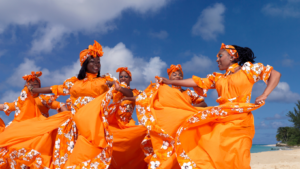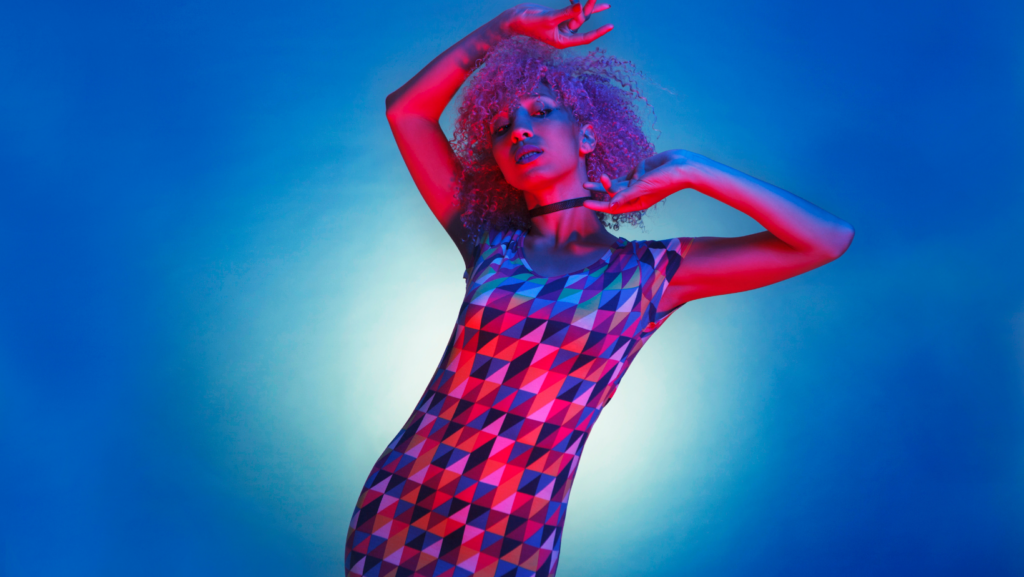Afro Caribbean Dance Music pulses with a vibrant energy that captivates listeners and dancers worldwide. Rooted in the rich cultural tapestry of the African diaspora, this genre melds traditional African rhythms with Caribbean influences, creating a sound that’s both infectious and deeply resonant. From the lively beats of soca to the rhythmic sway of reggae, Afro Caribbean Dance Music invites everyone to experience its unique blend of cultures.
The genre’s evolution reflects a dynamic history of migration, cultural exchange, and innovation. As artists infuse modern elements into their music, they continue to honor their heritage while pushing boundaries. This fusion results in an ever-evolving soundscape that keeps dance floors alive with excitement. Whether it’s the pulsating basslines or the irresistible call to move, Afro Caribbean Dance Music remains a testament to the power of rhythm and community, drawing people together in celebration and unity.
Afro Caribbean Dance Music
 Afro Caribbean Dance Music originates from the confluence of African, Caribbean, and European influences. This genre is a testament to diverse cultural interactions across centuries.
Afro Caribbean Dance Music originates from the confluence of African, Caribbean, and European influences. This genre is a testament to diverse cultural interactions across centuries.
Enslaved Africans brought their music traditions to the Caribbean, blending them with indigenous and European elements. Drums, an integral part of African culture, became central to new rhythmic patterns. Later, colonizers introduced European instruments like strings and accordions, which fused with African rhythms, creating unique sounds. This blend laid the groundwork for genres like reggae, calypso, and salsa.
Cultural Evolution
The genre evolved through migration and cultural exchange. Movements between islands and continents spread musical styles, leading to hybrid forms. Afro-Caribbean music embraced modern elements in the 20th century, incorporating jazz, funk, and hip hop. Festivals and carnivals, such as Trinidad’s Carnival, highlight this evolution, showcasing diverse rhythms and dance styles that celebrate heritage and creativity.
Popular Genres within Afro Caribbean Dance Music
 Popular genres within Afro Caribbean Dance Music reflect the fusion of vibrant rhythms and cultural influences. These genres blend African roots with Caribbean flavors, creating energetic and lively dance music.
Popular genres within Afro Caribbean Dance Music reflect the fusion of vibrant rhythms and cultural influences. These genres blend African roots with Caribbean flavors, creating energetic and lively dance music.
Reggaeton combines Latin and Caribbean influences with hip hop and reggae. Originating in Puerto Rico during the late 1990s, it gained popularity through catchy beats and danceable rhythms. Key characteristics include a dembow rhythm, syncopated basslines, and repetitive choruses. Artists like Daddy Yankee and Don Omar contributed to its global appeal.
Dancehall
Dancehall evolved from reggae in the late 1970s in Jamaica. It features a faster tempo and emphasizes rhythmic vocals over instrumental tracks. It often incorporates electronic beats and has a strong focus on dance culture. Prominent artists in this genre include Beenie Man and Sean Paul, whose tracks are staples in dance clubs worldwide.
Soca
Soca originated in Trinidad and Tobago during the early 1970s. It combines calypso with soul and various Indian musical influences. Soca is known for its up-tempo beats and festive spirit, making it popular during Caribbean Carnivals. Artists such as Machel Montano and Bunji Garlin have played pivotal roles in its prominence on the international stage.
Influential Artists and Figures
 Afro Caribbean Dance Music showcases a rich tapestry of talent, from its pioneering figures to modern influencers making waves on the global music scene.
Afro Caribbean Dance Music showcases a rich tapestry of talent, from its pioneering figures to modern influencers making waves on the global music scene.
Bob Marley, an icon in reggae, revolutionized the genre with profound lyrics and universal themes, making Jamaican music a worldwide sensation. His work laid the foundation for the genre’s international appeal. Lord Kitchener, a prominent calypso figure, infused his music with political and social commentary, shaping the soundscape of Trinidad and Tobago. Miriam Makeba, although primarily known for Afrobeat, significantly influenced Afro-Caribbean music, bridging African and Caribbean sounds through her collaborations and tours.
Modern Influencers
Daddy Yankee, a reggaeton superstar, propelled the genre to mainstream markets with hits like “Gasolina,” blending reggaeton with global pop rhythms. Sean Paul, a dancehall artist from Jamaica, gained international fame with his unique sound combining dancehall with pop elements, creating chart-topping hits. Machel Montano, known as the “King of Soca,” has continuously reinvented the soca genre, pushing its boundaries and influencing both regional and global audiences. These artists bridge traditional Afro-Caribbean roots with contemporary innovations, driving the genre forward.

